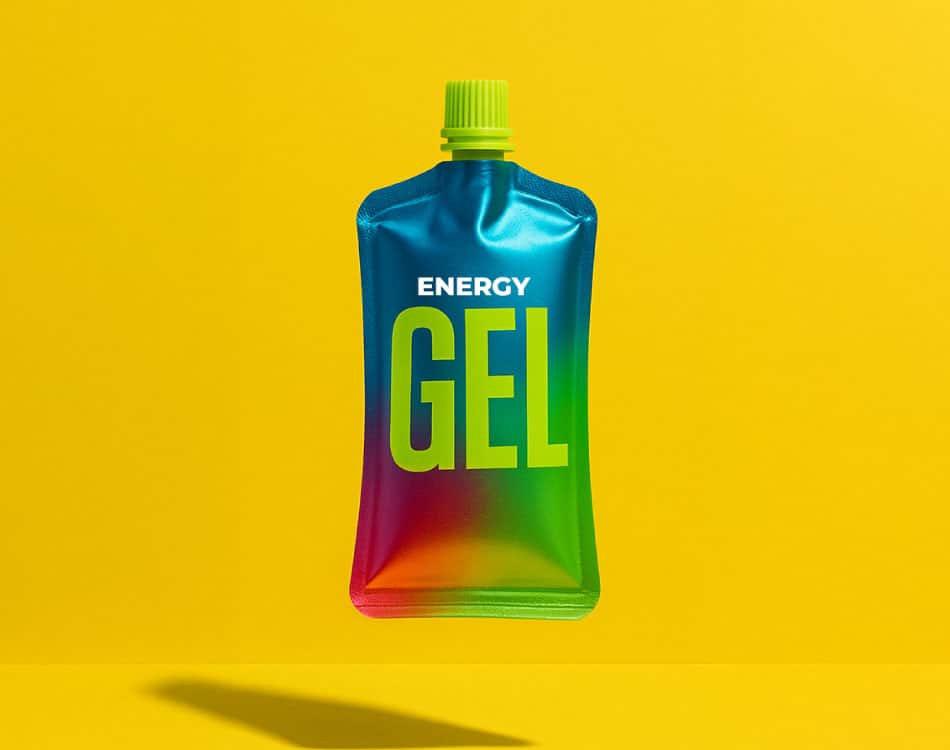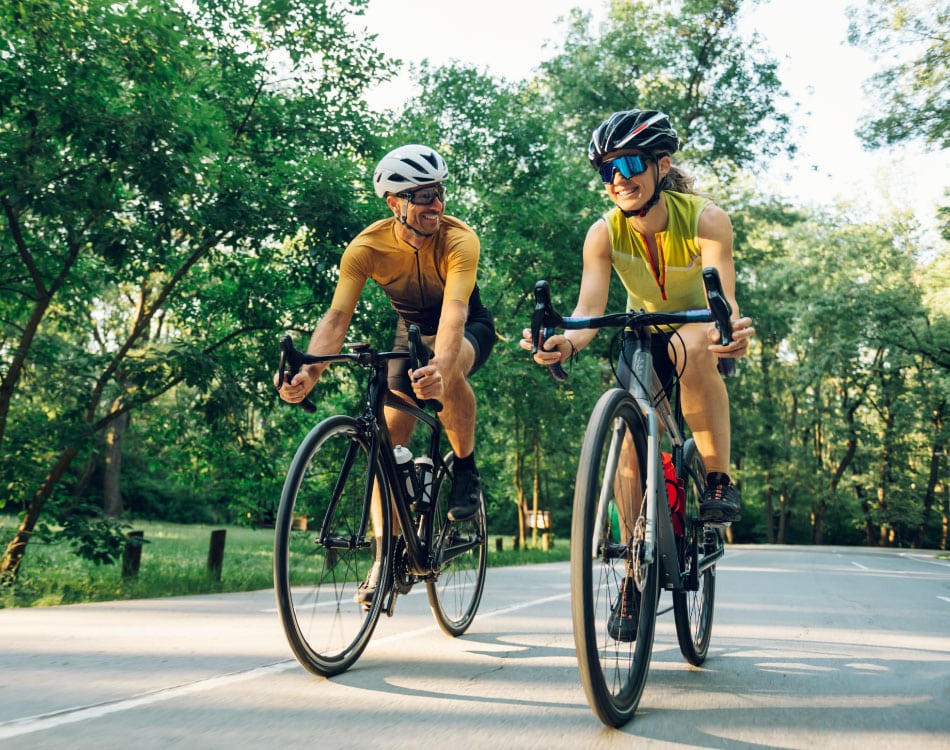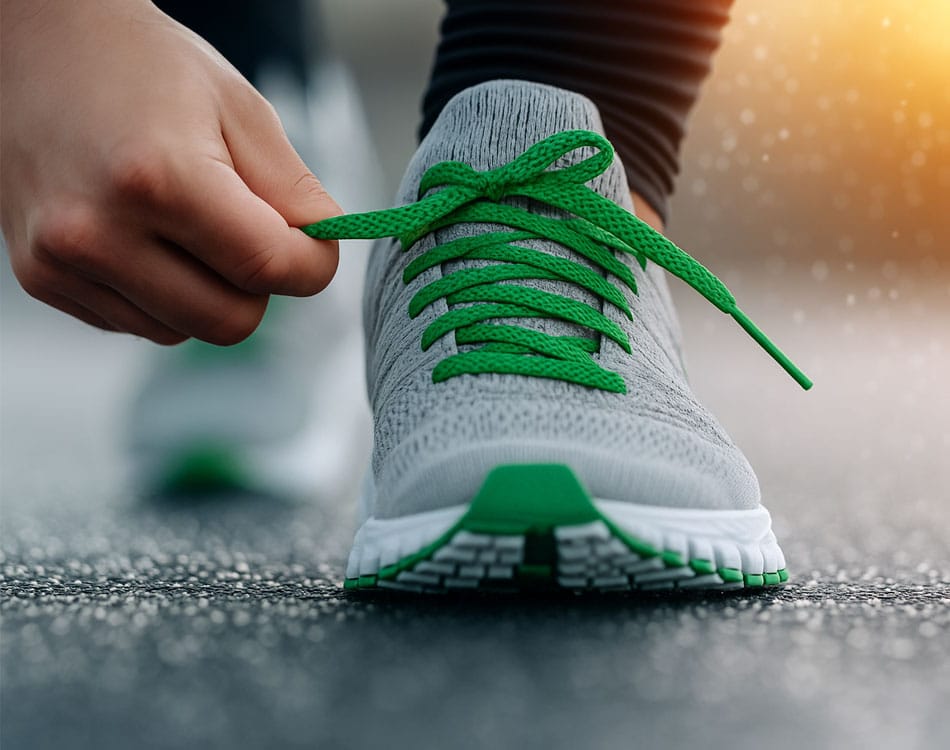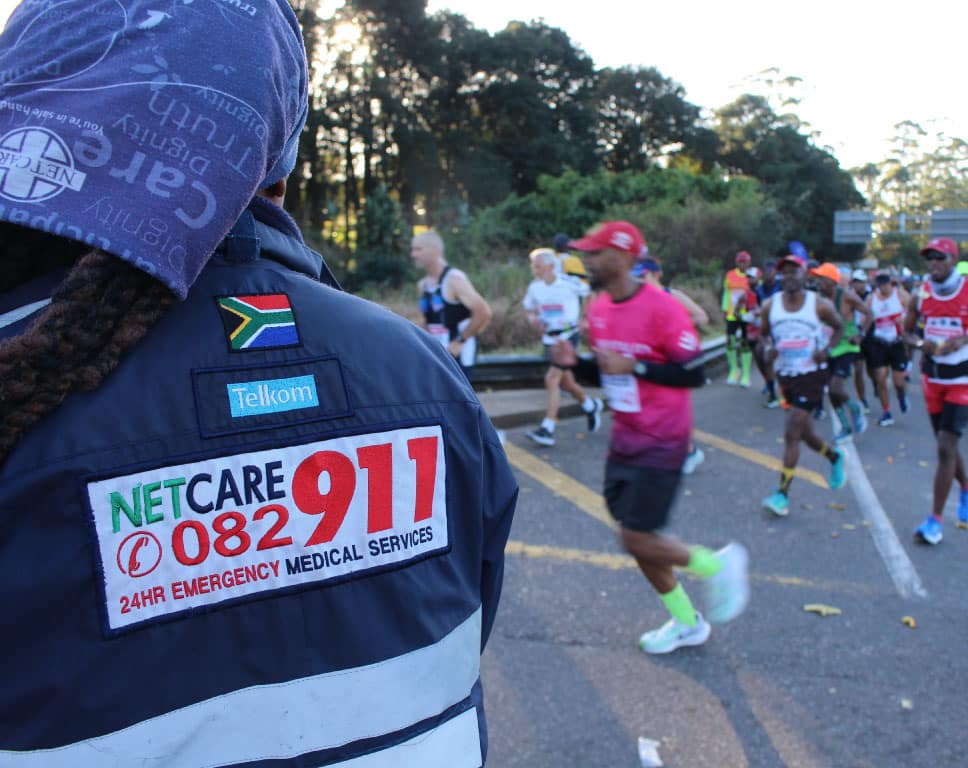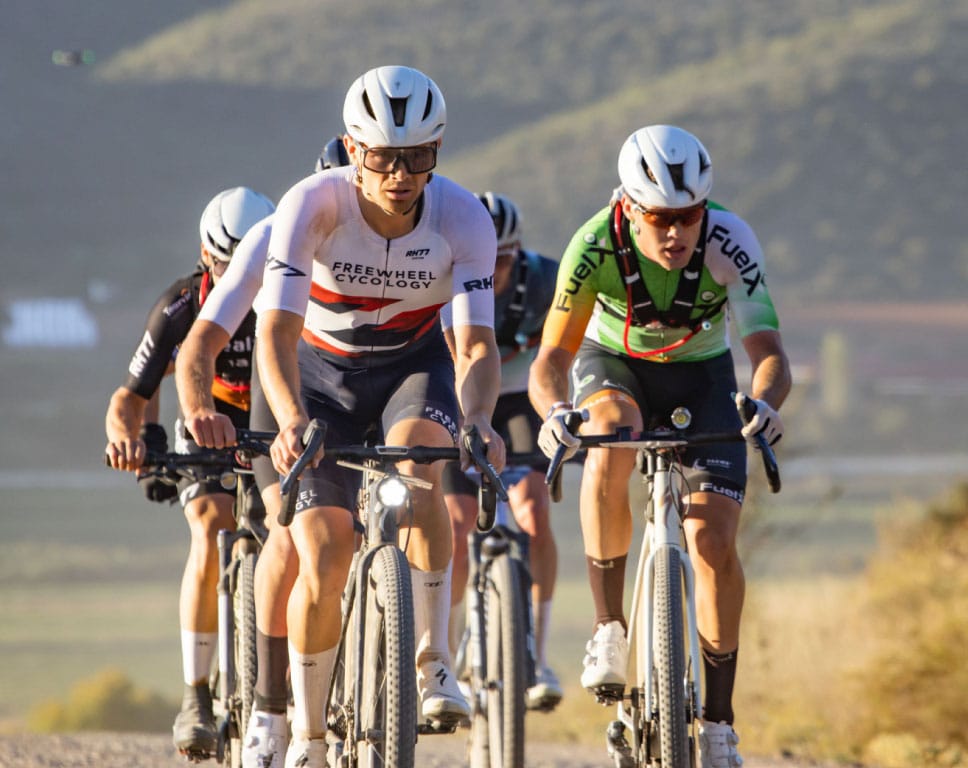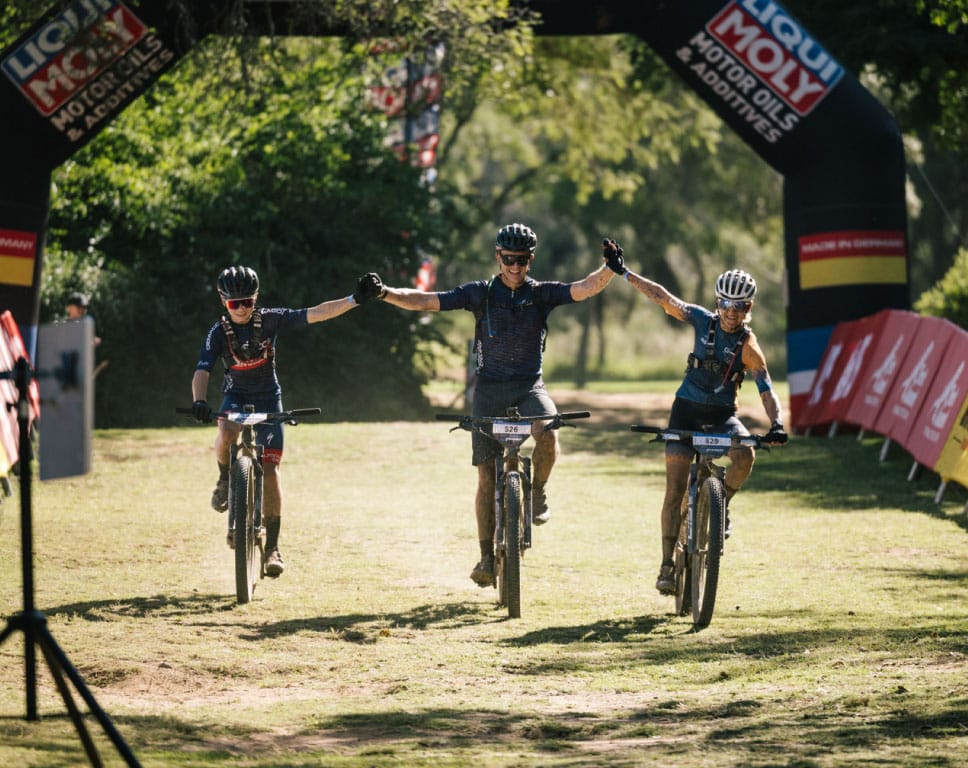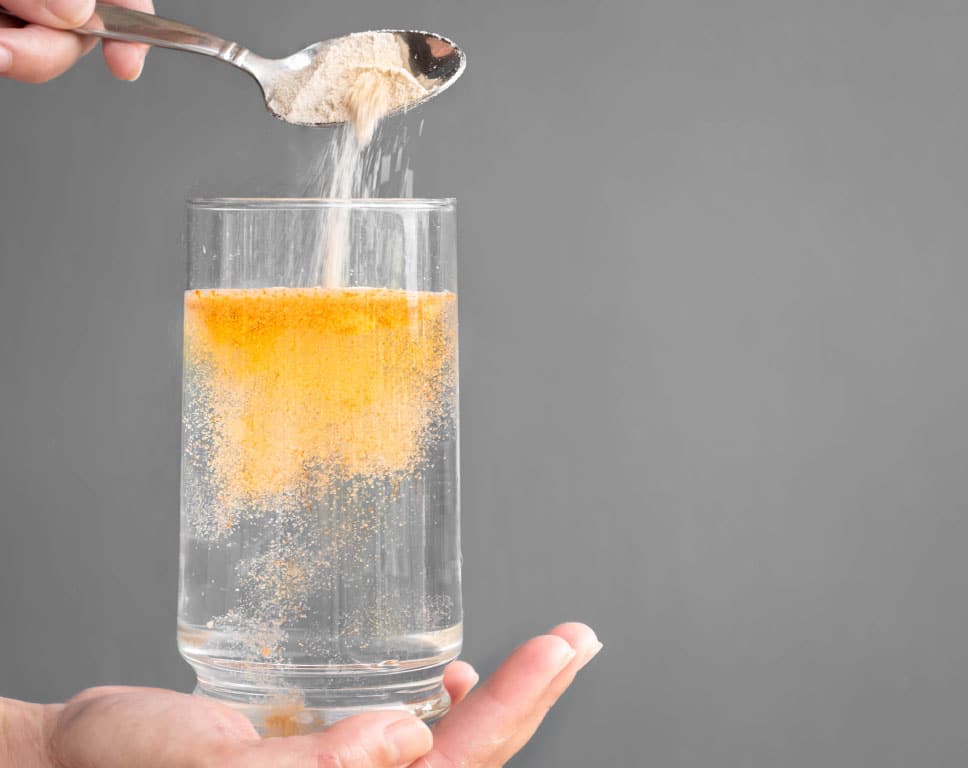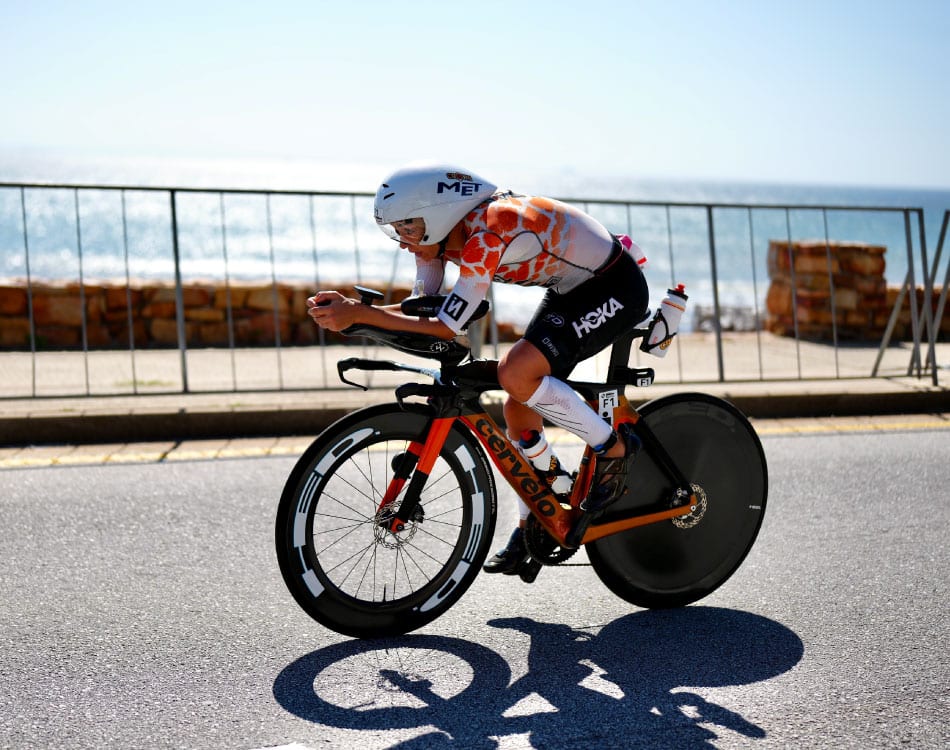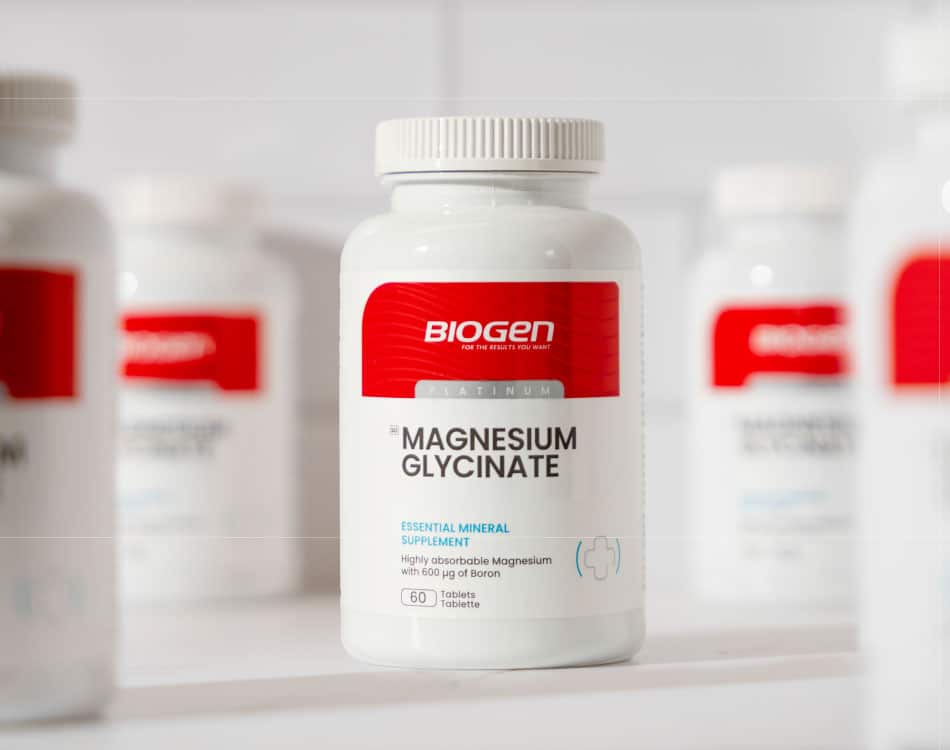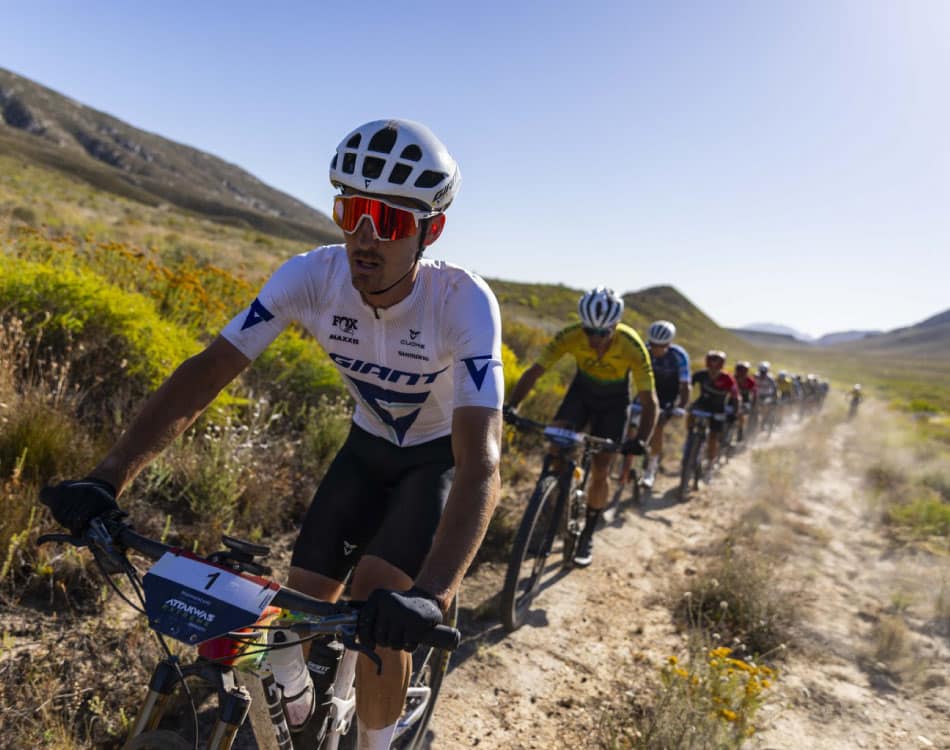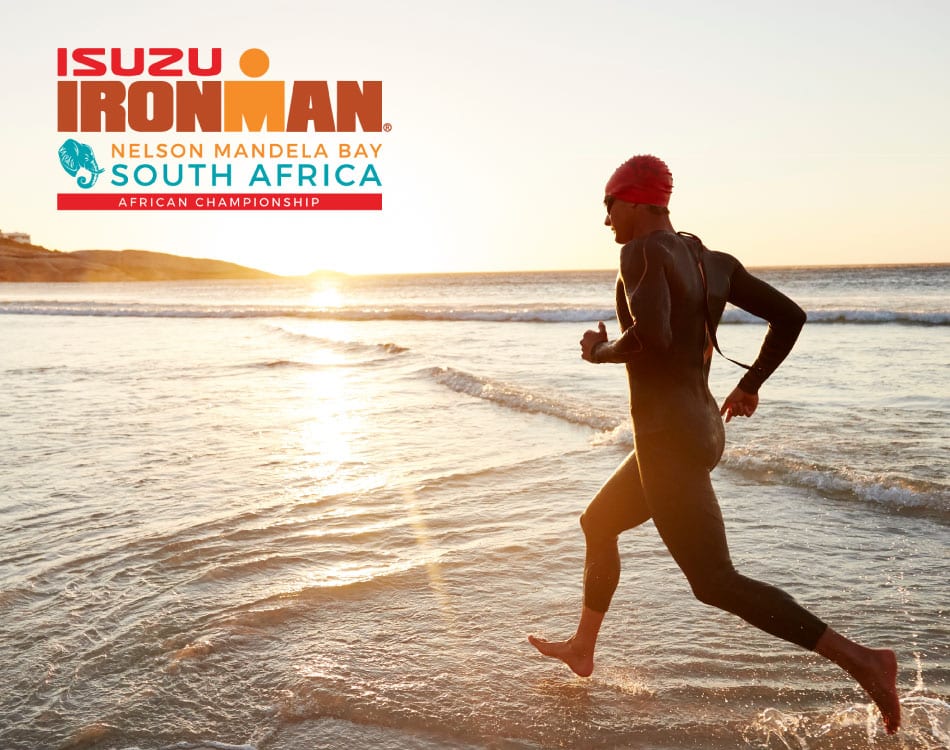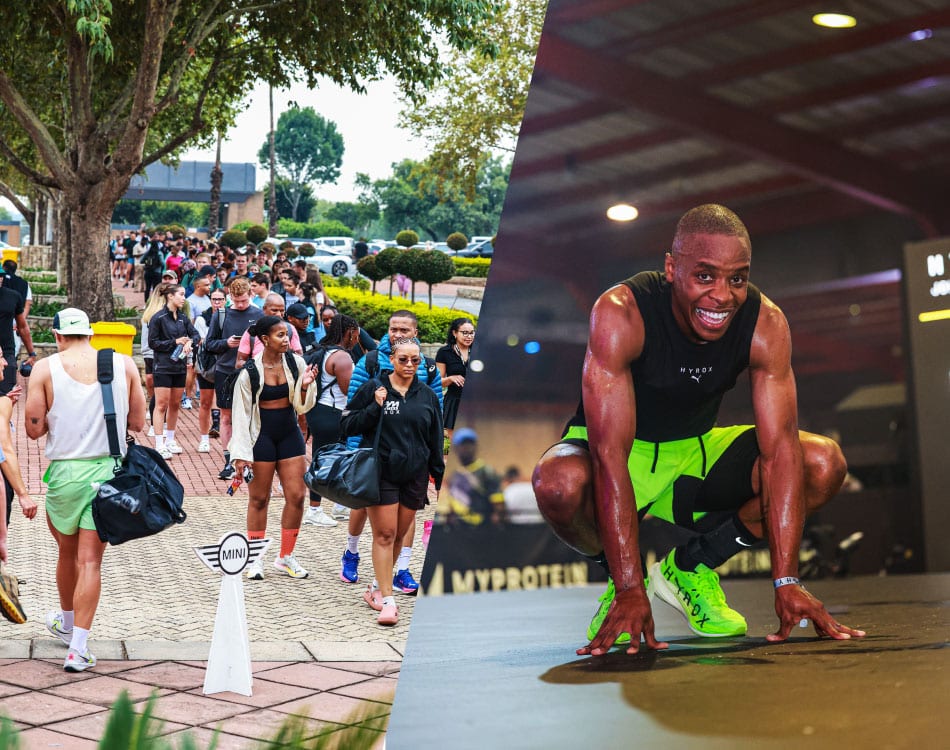Testosterone is the king of anabolic hormones thanks to its ability to build muscle and boost strength, but naturally boosting levels of this potent hormone can offer benefits to anyone who is serious about their physical performance and recovery, including endurance athletes.
Testosterone is critical for protein synthesis1 because it is a primary growth factor – it binds to receptors on the surface of muscle cells, amplifying the biochemical signals within muscles, resulting in new tissue and growth.
Moreover, testosterone helps boost levels of other growth factors, like growth hormone, further enhancing the protein synthesis process.
Beyond the muscle growth and strength development, testosterone plays important roles in bone density and recovery, and improves insulin sensitivity2, which are also factors essential for athletic performance.
Natural Testosterone Production
Testosterone is produced when the hypothalamus (located in the brain) releases a hormone called gonadotropin-releasing hormone (GnRH). This process is part of a complex feedback loop known as the hypothalamic-pituitary-gonadal (HPG) axis.
This activates the pituitary gland, which then releases luteinizing hormone (LH) and follicle-stimulating hormone (FSH). These hormones travel to the testes, where LH stimulates Leydig cells, prompting the release of androgens (male sex hormones) including testosterone.
Various psychological and environmental factors, including stress and calorie restriction, can influence GnRH production and thus testosterone levels.
Falling Testosterone Levels
Men can experience various symptoms when testosterone levels fall, including muscle loss, decreased strength and endurance, hair loss, depression, difficulties with concentration and memory, increased body fat, and sub-optimal recovery, among others.
High-volume, intense endurance training can lead to a decrease in testosterone levels, a common phenomenon among male athletes who engage in demanding workouts over extended periods, with several factors contributing to this decline.
The major cause is the stress that excessive training loads place on the body, affecting the HPG axis3, which regulates testosterone production. This stress can disrupt normal hormonal balance, leading to a decrease in testosterone production.
Intense and high-volume endurance exercise also elevates cortisol, a stress hormone that can interfere with testosterone production4 when the body cannot properly regulate levels.
For instance, University of British Columbia researchers found that male runners who ran more than 64km per week had noticeably lower testosterone levels compared to those who trained over shorter distances5.
In another study6, conducted at the Universidade Federal de Sao Paulo in Brazil, researchers examined the serum levels of 20 men before and after completing a marathon (42.2km). After the run, the athletes' testosterone levels were about 50% lower than baseline levels, and cortisol levels had more than doubled. These levels also remained elevated above baseline a day after the race.
In addition, athletes who fail to meet their required daily energy and protein requirements can find themselves in a daily calorie deficit (known as low energy availability)7, which can impair testosterone production.
The other issue relates to age, as testosterone production (along with other anabolic hormones like growth hormone) starts to decline gradually in men in their mid-30s and continues at an average rate of 1.6% per year8.
Other factors that can lower testosterone levels at any age include stress, illness, a lack of adequate sleep, and weight gain, particularly excess fat.
Boosting Levels Naturally
Fortunately, there are various ways that athletes at every level can safely and effectively boost circulating testosterone levels to support their performance and recovery.
Consuming more healthy natural fats is one way to boost testosterone production, with research9 finding that low-fat diets decreased testosterone levels by 10-15%.
General guidelines recommend deriving at least 30% of your calories from fat, including some natural saturated fat (no more than 10% of total fat intake), with additional omega-3 fatty acids.
Performing more heavy compound exercises during your strength training sessions can also help to naturally elevate testosterone levels while interval workouts that include sprinting have also shown benefits to natural production10.
Supplement your T
From a supplement perspective, there are various herbs, vitamins and minerals that can potentially boost testosterone production.
Testo booster products that include standalone or a combination of these ingredients are ideal for those looking to potentially support their natural testosterone production:
Tongkat Ali: A herbal supplement with research backing its ability to help increase low testosterone levels to support athletic performance, and muscle and strength gains.
Panax ginseng: An adaptogen that may help improve serum testosterone levels11 and sperm quality, potentially due to its stress-reducing and anti-inflammatory properties.
Zinc and Magnesium Aspartate (ZMA): A mineral support formula that helps the body optimise natural anabolic hormone production, including testosterone. May also help to improve sleep, which supports muscle development and aids recovery and performance.
Tribulus Terrestris: A herbal nutritional supplement that may help promote gains in strength and lean muscle mass by indirectly boosting natural testosterone production. This natural substance reportedly increases the release of LH, which stimulates testosterone release, and the subsequent rise in circulating testosterone may have anabolic effects.
Ashwagandha: Primarily used as an adaptogen, which helps your body handle stress and anxiety, but numerous studies suggest it can also help boost testosterone levels. In a study12, subjects (men aged 40-70) who received an ashwagandha supplement showed an almost 15% increase in testosterone on average and an 18% increase in DHEA, a hormone that helps produce other hormones, including testosterone.
Vitamins B5 and B6: All the B-group vitamins play a role in testosterone regulation and production. A lack of vitamin B6 causes a rise in oestrogen levels, and pantothenic acid (vitamin B5) enables the testes to produce testosterone from cholesterol13.
If you have any concerns about your testosterone levels, it is advisable to discuss your concerns with your doctor, pharmacist or healthcare provider, who can assist with supplementation guidance or recommend appropriate treatment options, if necessary.
Professional and competitive athletes should use testosterone-boosting products that carry Informed Sport or Informed Choice certification.
References
- Griggs RC, Kingston W, Jozefowicz RF, Herr BE, Forbes G, Halliday D. Effect of testosterone on muscle mass and muscle protein synthesis. J Appl Physiol (1985). 1989 Jan;66(1):498-503. doi: 10.1152/jappl.1989.66.1.498. PMID: 2917954.
- Ottarsdottir K, Nilsson AG, Hellgren M, Lindblad U, Daka B. The association between serum testosterone and insulin resistance: a longitudinal study. Endocr Connect. 2018 Dec 1;7(12):1491-1500. doi: 10.1530/EC-18-0480. PMID: 30592706; PMCID: PMC6311464.
- Hackney AC, Aggon E. Chronic Low Testosterone Levels in Endurance Trained Men: The Exercise- Hypogonadal Male Condition. J Biochem Physiol. 2018;1(1):103. Epub 2018 Feb 28. PMID: 29882545; PMCID: PMC5988228.
- Khan SU, Jannat S, Shaukat H, Unab S, Tanzeela, Akram M, Khan Khattak MN, Soto MV, Khan MF, Ali A, Rizvi SSR. Stress Induced Cortisol Release Depresses The Secretion of Testosterone in Patients With Type 2 Diabetes Mellitus. Clin Med Insights Endocrinol Diabetes. 2023 Jan 3;16:11795514221145841. doi: 10.1177/11795514221145841. PMID: 36636127; PMCID: PMC9830570.
- MacKelvie KJ, Taunton JE, McKay HA, Khan KM. Bone mineral density and serum testosterone in chronically trained, high mileage 40-55 year old male runners. Br J Sports Med. 2000 Aug;34(4):273-8. doi: 10.1136/bjsm.34.4.273. PMID: 10953900; PMCID: PMC1724199.
- França SC, Barros Neto TL, Agresta MC, Lotufo RF, Kater CE. Resposta divergente da testosterona e do cortisol séricos em atletas masculinos após uma corrida de maratona [Divergent responses of serum testosterone and cortisol in athlete men after a marathon race]. Arq Bras Endocrinol Metabol. 2006 Dec;50(6):1082-7. Portuguese. doi: 10.1590/s0004-27302006000600015. PMID: 17221115.
- Cupka M, Sedliak M. Hungry runners – low energy availability in male endurance athletes and its impact on performance and testosterone: mini-review. Eur J Transl Myol. 2023 Apr 11;33(2):11104. doi: 10.4081/ejtm.2023.11104. PMID: 37052052; PMCID: PMC10388605.
- Stanworth RD, Jones TH. Testosterone for the aging male; current evidence and recommended practice. Clin Interv Aging. 2008;3(1):25-44. doi: 10.2147/cia.s190. PMID: 18488876; PMCID: PMC2544367.
- Whittaker J, Wu K. Low-fat diets and testosterone in men: Systematic review and meta-analysis of intervention studies. J Steroid Biochem Mol Biol. 2021 Jun;210:105878. doi: 10.1016/j.jsbmb.2021.105878. Epub 2021 Mar 16. PMID: 33741447.
- Vingren JL, Kraemer WJ, Ratamess NA, Anderson JM, Volek JS, Maresh CM. Testosterone physiology in resistance exercise and training: the up-stream regulatory elements. Sports Med. 2010 Dec 1;40(12):1037-53. doi: 10.2165/11536910-000000000-00000. PMID: 21058750.
- Leung KW, Wong AS. Ginseng and male reproductive function. Spermatogenesis. 2013 Jul 1;3(3):e26391. doi: 10.4161/spmg.26391. Epub 2013 Sep 13. PMID: 24381805; PMCID: PMC3861174.
- Lopresti AL, Drummond PD, Smith SJ. A Randomized, Double-Blind, Placebo-Controlled, Crossover Study Examining the Hormonal and Vitality Effects of Ashwagandha ( Withania somnifera) in Aging, Overweight Males. Am J Mens Health. 2019 Mar-Apr;13(2):1557988319835985. doi: 10.1177/1557988319835985. PMID: 30854916; PMCID: PMC6438434.
- Takahashi K, Fukuwatari T, Shibata K. Exercise and a High Fat Diet Synergistically Increase the Pantothenic Acid Requirement in Rats. J Nutr Sci Vitaminol (Tokyo). 2015;61(3):215-21. doi: 10.3177/jnsv.61.215. PMID: 26226957.


